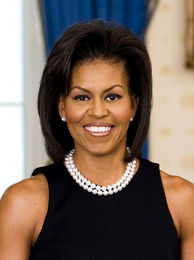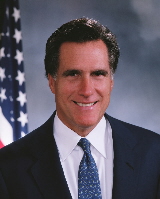The Top Five Smart Politics Reports of 2012
A look back at a few of the most illuminating, odd, and controversial reports published by Smart Politics this year

1. Michelle Obama’s DNC Speech
Smart Politics reviewed the prepared remarks delivered by the spouses of all presidential nominees at national political conventions in history and ranked them based on the Flesch-Kincaid readability test. The results were that Michelle Obama’s 2012 speech to the DNC was written at seven grade levels above Ann Romney’s. The First Lady’s speech was written at a 12th grade level – the highest in history among the wives of presidential nominees – while Ann Romney held the distinction of tallying the lowest such mark with her 2012 RNC speech coming in at a 5th grade level.
2. Barack Obama’s State of the Union Address
Interestingly, many of those who celebrated and pushed the aforementioned report on the First Lady’s speech, had been quick to dismiss the significance of the Flesch-Kincaid test earlier in the year when Smart Politics applied it to the President’s State of the Union address. For the third consecutive year, Obama’s speech was written at a historically low reading level with the president now owning three of the lowest six such scores out of the 70 orally delivered SOTU addresses since Franklin Roosevelt. Obama’s 2012 speech came in at an 8.4 grade level following up his 8.1-level address in 2011 and 8.8-level in 2010.
3. Media Delegate and Battleground State Counts
The 2012 presidential election results ended up not quite as close as many expected during the year, and media consenus on the state of the race was hard to find in the months leading up to the campaign. For example, a Smart Politics report from February found that the GOP primary delegate scorecards of eight prominent news outlets were all different – no two counts were alike. The premature nature of these delegate scorecards was made all the more clear when the candidate who took home the vast majority of Iowa’s delegates from the caucuses in the end was not Rick Santorum or Mitt Romney, but Ron Paul.
Once the general election matchup was decided, a Smart Politics analysis of major media outlets’ election projection maps found few could agree on a definitive list of toss-up states in the 2012 presidential race with 12 outlets yielding 10 different lists.
4. Rick Santorum’s Blinking Problem
After coding everything from the debate game clock, historical presidential references, interjections by moderators, candidate tie colors, and candidate lapel pins across the 20 Republican primary debates, what was left but to count the rate at which the presidential hopefuls blinked on stage? In a January debate, Rick Santorum blinked at nearly twice the rate as the next closest candidate, often appearing uncomfortable at the podium. In October, Barack Obama blinked 1,000 times more than Mitt Romney – in the most lopsided televised debate in history (according to Gallup polling numbers).

Romney’s 23-point deficit in Massachusetts was second only to Republican John Frémont of California in 1856 for the worst such loss in the modern two-party era. Romney and Ryan were also the first ticket in 40 years to fail to carry the home state of either nominee and are one of 20 major party tickets with that distinction since 1828.
Smart Politics thanks its readership for yet another record-making year in site traffic, as well as the media, whose continued appetite for creative, non-partisan data-driven reporting generated nearly one thousand feature stories on and citations to Smart Politics reporting across scores of national and local television, radio, print, and digital outlets.
Follow Smart Politics on Twitter.
